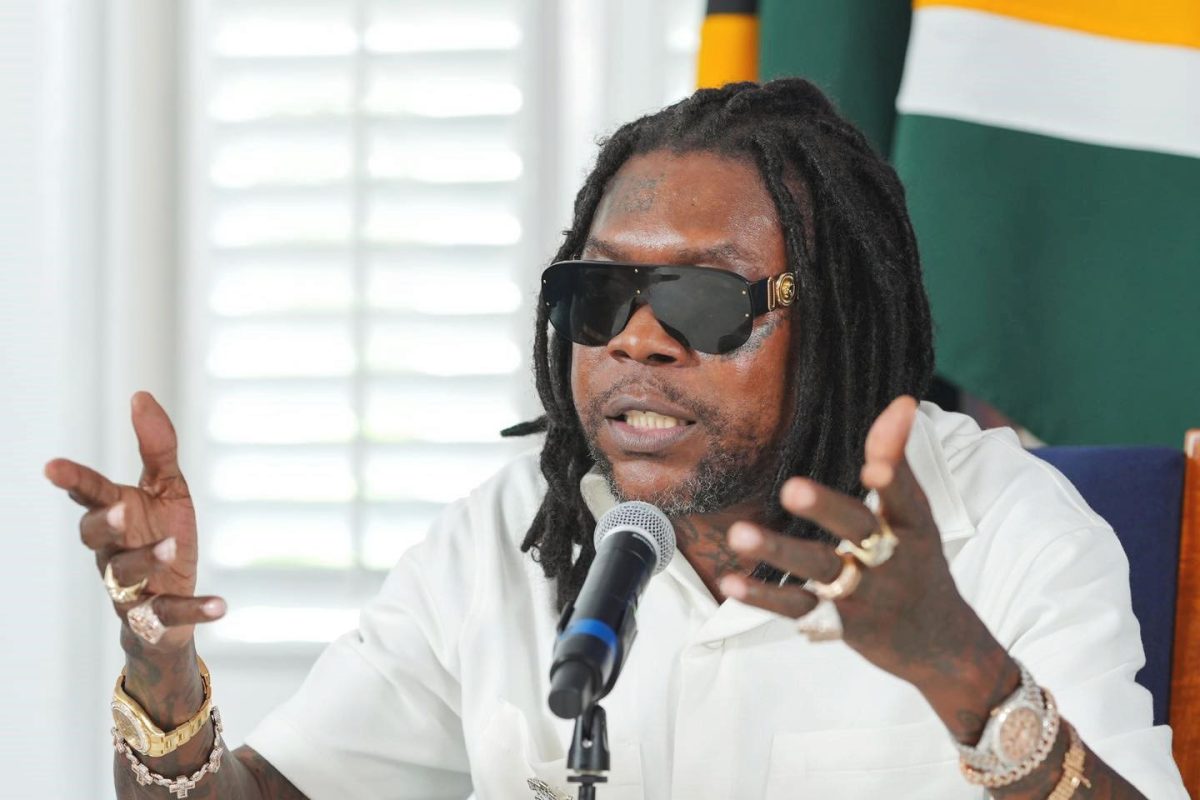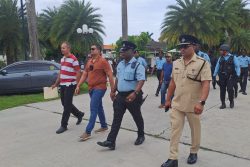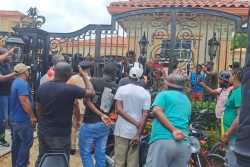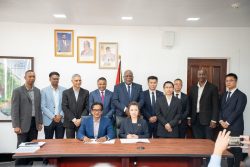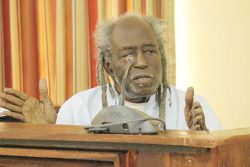President Irfaan Ali yesterday hosted Jamaican and international dancehall artist Adidja Azim Palmer, better known as Vybz Kartel, at State House.
During the visit, President Ali and Kartel discussed potential collaborations within the entertainment industry, focusing on promoting positive living, fostering a positive lifestyle, and spreading positive vibes to inspire societal change, a release from the Office of the President said.
Several Guyanese artists were also given the opportunity to engage directly with Kartel. This meeting allowed local artists to ask Kartel about his career, life, motivations, challenges, and journey through the highly competitive regional and international music scene.
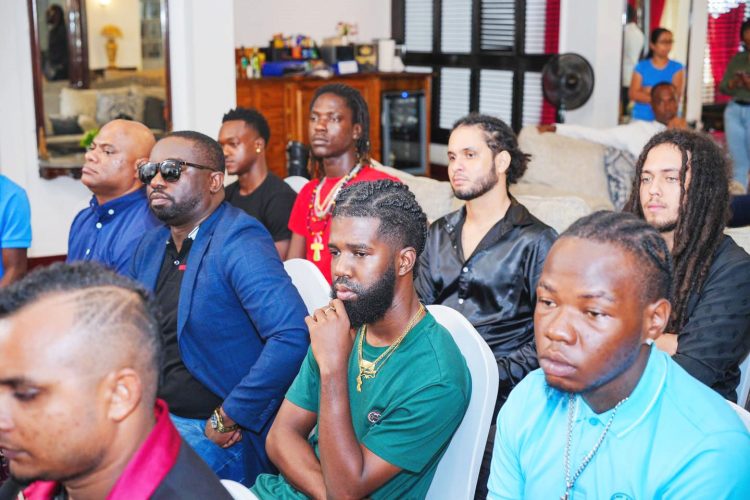
Kartel announced that he will return to Guyana through collaboration with President Ali and the Government of Guyana for an exciting new project. This initiative will involve local artists and will result in collaborations with one male and one female artiste
On March 13 last year, Kartel’s conviction for the murder of an associate more than a decade earlier was quashed with the UK Privy Council ruling that attempts to bribe the trial jury meant the conviction was unsafe.
Kartel, 49, had been in jail in Jamaica since 2011 over the disappearance of his associate Clive “Lizard” Williams, whose body has never been found.
After a 64-day trial in Kingston, one of the longest in Jamaican history, Kartel and three others were convicted in 2014. Kartel was sentenced to life imprisonment with a minimum of 35 years, later reduced on appeal to 32-and-a-half.
In February, 2024, Kartel and his co-defendants mounted their final possible appeal at the Privy Council in London, the final court of appeal in Jamaica and some other Commonwealth countries.
Their lawyers argued the trial judge wrongly handled allegations that one juror offered 500,000 Jamaican dollars (around $3,200) to fellow jurors to return not guilty verdicts.
Reuters reported that the defendants’ appeals were allowed with Judge David Lloyd-Jones saying the trial judge’s decision to allow the juror alleged to have offered bribes to continue on the jury was “fatal to the safety of the convictions”.
The Privy Council sent the case back to the Court of Appeal in Jamaica to decide whether Kartel and his co-defendants should stand trial again.
On August 1 last year, President of the Jamaica Court of Appeal Justice Marva McDonald Bishop, in freeing Kartel and his three co-appellants said that it was not in the interest of justice to order a retrial.
According to the Jamaica Gleaner, the panel of judges which included Justices Paulette Williams and David Fraser considered 12 factors in arriving at the decision.
The factors include the seriousness and prevalence of the offence; the strength of the prosecution’s case; the availability of the witnesses and exhibits; the availability of the defence witnesses, the delay and whether a trial can be facilitated within a reasonable time, the time, financial cost, expense and impact on the court’s resources if a new trial is re-ordered; the unfairness of a new trial if ordered; and the ordeal to be faced by the appellants if a retrial is re-ordered.
Considering all the factors, McDonald Bishop said, “Having weighed everything in the balance, the weight is against a new trial.”
She highlighted that the features of this case bear every hallmark of a “deliberate attack and barefaced defiance of law and order”, noting that it involved a transaction relating to an illegal firearm, an alleged killing in which the body of the deceased was not found, and interference with a crime scene under police control.
“The court is therefore satisfied that the nature, the seriousness and prevalence of the alleged offence in this case are powerful factors that weighed in favour of a retrial,” McDonald Bishop said.
On the other hand, she said, “The court however finds that there are several equally powerful factors which when combined militate against ordering a new trial.’
She listed factors such as the prosecution’s insufficient and inadequate account of the availability of the witnesses and trial exhibits, the unavailability of witnesses and exhibits which was relied upon by the defence in the first trial, the financial impact on the appellants, and the impact on the court resources if a trail is ordered, which swung the pendulum in the former convicts’ favour.
